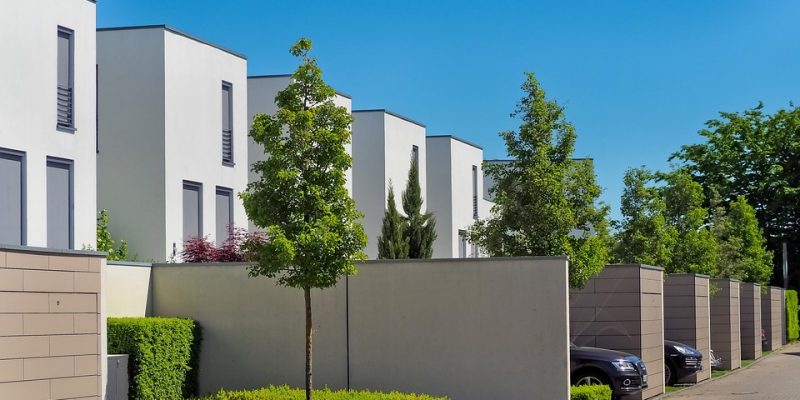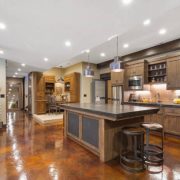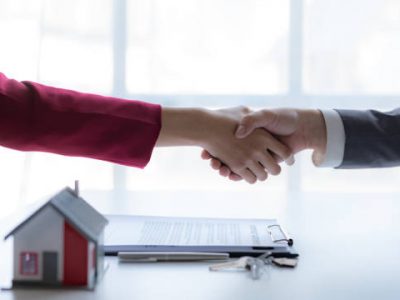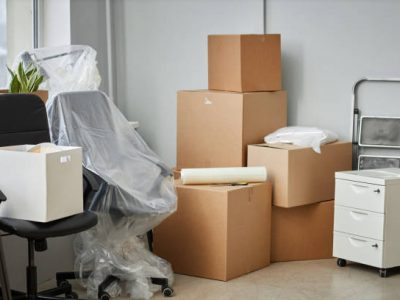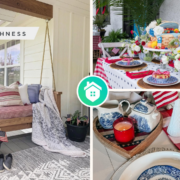Moving to a new home is one of life’s biggest decisions, and there are several questions that might cross your mind.
Almost every real estate investor faces this dilemma at least once— to choose for the neighborhood or the price.
There are two major reasons why someone would buy property. It can be either for investment purposes, or to make it a home
Posh neighborhoods can feel great, however, buying a home in one such place costs heavy on your wallet. This is a major reason why some individuals (investors and homeowners alike) might choose a neighborhood that might not be all that safe.
You might get an excellent price on the property, or the space itself is much bigger and better. However, just like the good things, when it comes to a home, you might have to contend with a bad or unsafe neighborhood.
A bad neighborhood means you must be cautious and aware of several things. This article will inform you about important factors to consider when buying property in a bad neighborhood.
Things You Need To Know When Buying A Home In A Bad Neighborhood
Given below are some of the important factors that you need to know when buying a property in a bad neighborhood—
1. Know What Can Affect You
Before anything, knowing what you can expect from a bad neighborhood is extremely important.
Following are some of the most important factors that can affect you in a bad neighborhood:
● Run-down houses.
● High crime rates.
● Unsafe streets (any time of the day or night).
● Ill-reputed schools and hospitals.
● Problematic or suspicious neighbors.
● Poor building maintenance.
● Gang activities.
● Disrupted public services (garbage disposal, water supply, electricity, etc.)
In addition to personal safety, crime rates also affect costs. Buying a home in an area with high levels of burglary, auto theft, vandalism, hit-and-run, or fender damage results in losing both lives and properties.
Moreover, areas with higher property crime rates (such as burglary, theft, and vandalism) typically have higher home insurance premiums.
2. Know How To Secure Your Home
Staying safe in a bad neighborhood is essential to protect your well-being, possessions, and yourself.
These areas often have high crime rates, so being prepared and knowing how to avoid risks can help reduce the likelihood of being a victim of crime.
How To Secure Yourself
There are several ways you can ensure personal security in a bad neighborhood.
- Avoid taking night-time strolls all alone.
- Try to find a ride, use the bus or train, and stick to well-lit busy areas.
- Keep your wallet, phone, and other valuables stashed in a safe place and keep your valuables out of sight.
- Maintain a fully charged and handy phone in case of an emergency.
- Keep all the important phone numbers on your quick dialing list.
How To Secure Your Property
Once you ensure personal security, you must look into ways that can safeguard your home and belongings from burglars, porch pirates and other criminals.
- Install alarm and security camera systems around your house to dissuade intruders.
- Lock all of your doors and windows, even while you are at home. Never leave valuables on display.
- Install motion sensor lighting around the exterior of your house to illuminate any possible entryways.
- Establish a neighborhood watch group with neighbors to watch for any strange activities and report them to the authorities.
3. Know The Important Facilities Nearby
When buying a home in any neighborhood, it is extremely important for the owners to have a clear idea of the area map.
Knowing the location of crucial facilities and community service buildings will help you face situations like illness, accidents, etc.
Moreover, groceries and other essential stores must be present nearby. This will help you avail food and necessities quickly and avoid traveling long distances for a simple need.
Routes to the following facilities should be at your fingertips:
- Grocery or departmental stores.
- Pharmacies.
- Hospitals.
- Gas stations.
- Emergency sanitation services.
- Sewers and waste disposal.
- Fire stations.
Buyers with children must look out for areas with decent schools, which helps stabilize property prices.
Make an attempt to know the following factors in the nearby schools when moving to a problematic neighborhood:
- Bus travel distance.
- Walking availability.
- Safety measures inside the school.
- Problematic histories.
Also, if your new neighborhood is on the outskirts, you must figure out the routes to the city. Talk to the local people to know which route is shorter and safer to travel at any time of the day.
4. Know Your Neighbors
Neighbors make a significant contribution to your sense of security and mental peace. In a problematic neighborhood, they can be your closest friend or your worst enemy.
Knowing your neighbors can help you in a two-fold way:
- First, you know who to approach whenever you’re in trouble.
- Second, you know who to stay away from to keep all troubles at bay.
To know your neighbors, it is important that you interact with them whenever you find the opportunity.
Strike a conversation on your moving-in day and ask questions about the surroundings. This will not only help you know them but also get an idea about some of the problems and perks of the place.
However, maintain your boundaries when you interact with your neighbors. It is best not to put everything on the tray until you get to know them better.
5. Know How To Defend Against All Odds
Another important thing one must know when dwelling in an unsafe neighborhood is self-defense.
The government advises people to call the police when they believe someone has broken into their home.
However, if defending their family and property is essential, they have the right to use reasonable force to combat the invader. Self-defense is a grave matter and must be done in a moral and legal way.
When owning a self-defense weapon, you must learn everything you need to know about guns and ammunition. Making informed decisions is extremely crucial in these cases.
Note: Keeping your arms away from children and knowing the rules of using one can help you put the weapon to its best use and safeguard your family from any attack.
6. Know Your ROI
When you have a property in a bad neighborhood, it is important to keep track of your investment and know the market changes that affect this investment.
Real estate investors can acquire affordable homes in bad neighborhoods and rent them out for 2-4% of the original cost.
Long-term returns on investment can be better, but it’s crucial to thoroughly investigate the area and any hazards before purchasing.
When buying property in such places, you need to be ready to accept the challenge of managing and renovating the real estate, which can result in greater returns on investment.
7. Know The Living Expenses
Know matter where you stay, living expenses are an important aspect that needs to be considered when moving in.
Estimating your budget on a daily and monthly basis will depend on a number of things.
Everything will impact your living expenses, from the distance of essential facilities to the availability of supplies.
Following are the expenses you need to calculate:
- Food.
- Healthcare.
- Utility Bills
- Transportation.
- Cleaning.
Make Your Investment Smart
No matter the location, you can always turn your real estate investment into something great.
Buying a property in a bad neighborhood can be successfully treated as a fix-and-flip investment or a rental property.
Moreover, you can just take care of the property and follow the steps mentioned in the article to continue a peaceful and fulfilling living in your home.


